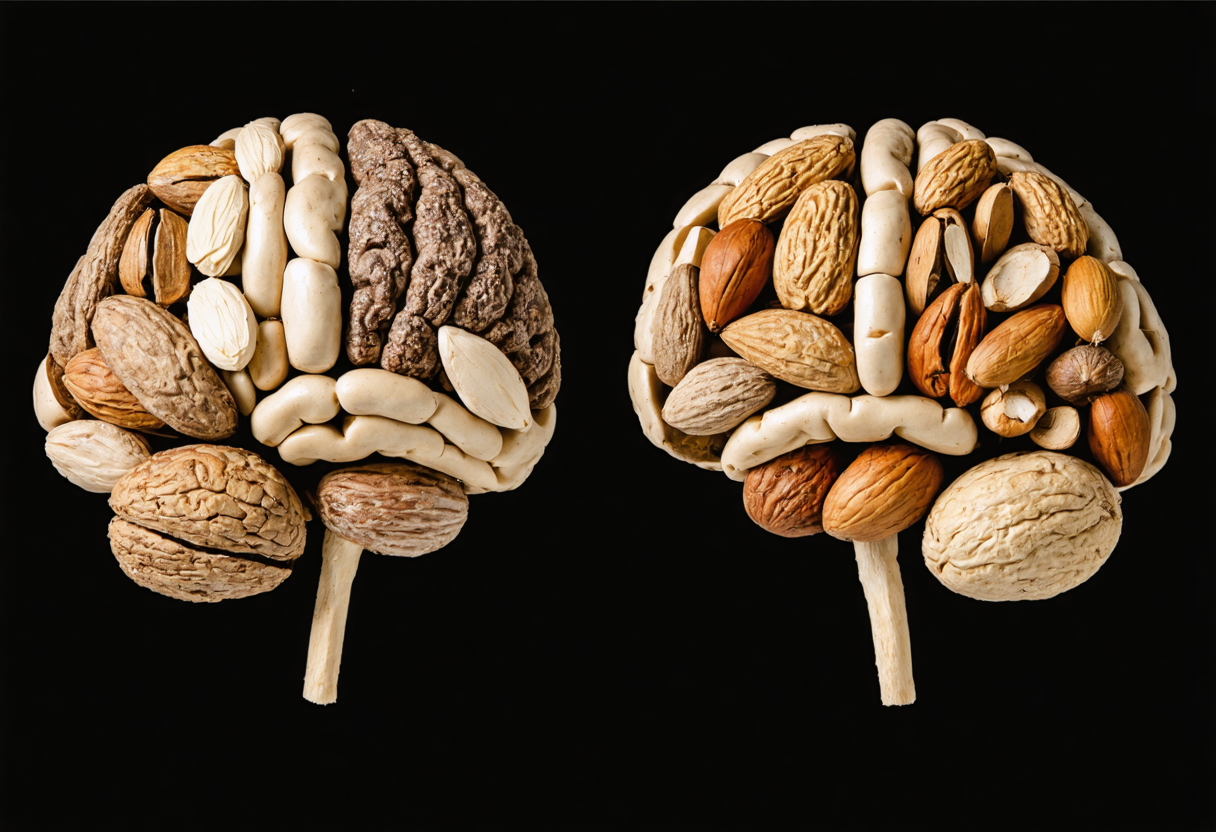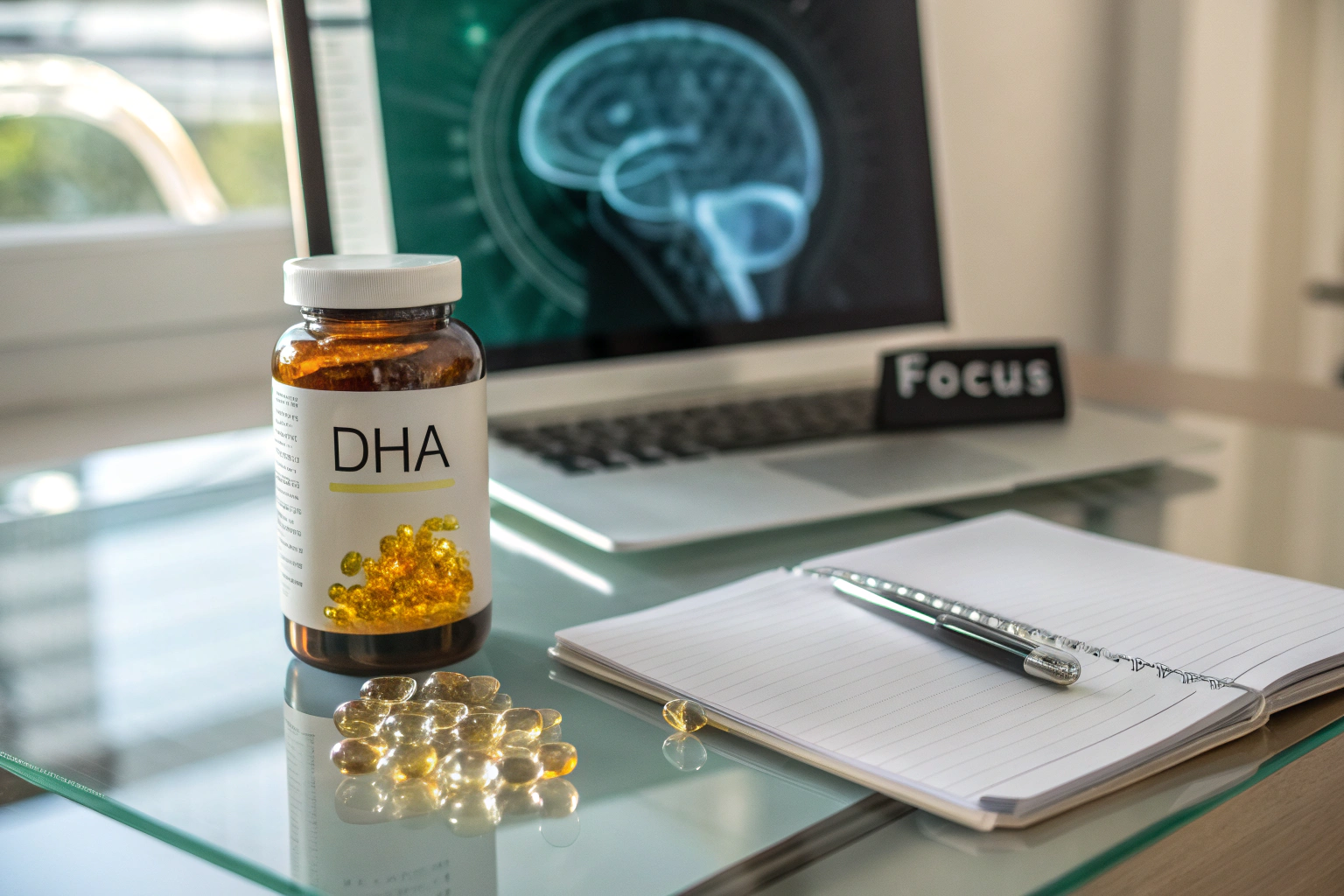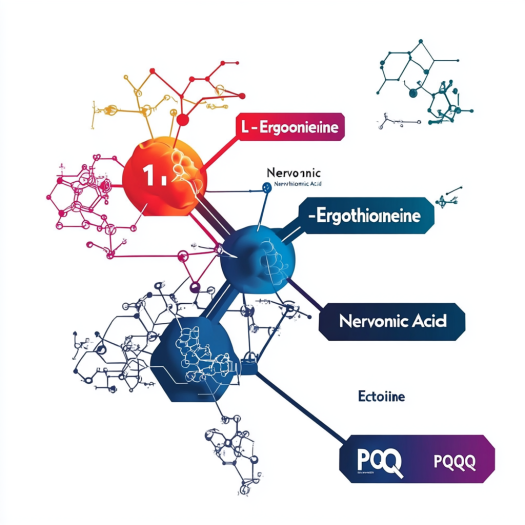
When it comes to brain health, nervonic acid and DHA often top the conversation—but which truly outshines the other?
Both nervonic acid and DHA are crucial for brain health, but nervonic acid specifically supports nerve regeneration and brain cell repair, while DHA primarily boosts cognitive function and memory. Choosing depends on whether you need cellular repair or cognitive performance enhancement.
Now, let’s dive deeper into these fascinating fatty acids and find out exactly how each can benefit your brain health journey.
What Is Nervonic Acid and Why Should You Care?
Let’s get personal here—I first learned about nervonic acid when helping my dad find supplements for nerve pain relief. Turns out, it’s a real hidden gem.
Nervonic acid is a rare omega-9 fatty acid critical for nerve cell regeneration, brain health, and supporting the protective myelin sheath around nerves. It specifically helps repair damaged nerves and improve overall brain function, particularly beneficial in aging adults.

Here’s the thing—I didn’t realize how powerful nervonic acid was until I looked deeper. It’s naturally found in small amounts in some foods like rapeseed oil and flaxseeds. But its role goes way beyond diet—it actively helps your nerve cells heal and regenerate. Think of nervonic acid like the electrician repairing damaged wires inside your brain. It rebuilds the myelin sheath—the fatty insulation protecting nerves—which can get damaged as we age or from conditions like Alzheimer’s or MS.
One fascinating study from Japan showed how nervonic acid significantly improved cognitive function1 in elderly people with memory loss. After taking supplements for just six months, participants showed better recall and sharper focus—this wasn’t something I could ignore!
| Key Benefits of Nervonic Acid | Explanation |
|---|---|
| Nerve Cell Repair | Supports regeneration of nerve cells. |
| Myelin Sheath Restoration | Repairs protective nerve coverings. |
| Cognitive Improvement | Enhances memory and focus over time. |
Personally, after recommending nervonic acid supplements for my dad, he mentioned feeling sharper and experiencing less tingling sensations in his fingers, which made me an instant believer.
How Does DHA Help Your Brain?
Now, DHA was something I’d heard about since childhood—it’s in fish oil supplements, right? But why is everyone so excited about it?
Docosahexaenoic Acid (DHA) is a crucial omega-3 fatty acid widely known for improving cognitive performance, memory, and protecting against age-related mental decline. DHA enhances communication between neurons, making it essential for overall brain function.

DHA isn’t just trendy—it’s literally the building block of your brain cells. Imagine DHA like the high-quality oil that keeps your car engine running smoothly. It boosts communication between brain cells, helps neurons function better, and sharpens your thinking and memory skills.
For me, it clicked when I saw a fascinating research paper from Harvard. Older adults taking DHA-rich supplements regularly scored significantly better in memory tests compared to those who didn’t. DHA also helps reduce inflammation in the brain, which means it might protect you from cognitive decline linked to conditions like Alzheimer’s disease.
| Key Benefits of DHA | Explanation |
|---|---|
| Enhanced Cognitive Function | Improves memory, attention, learning. |
| Reduced Brain Inflammation | Lowers risk of cognitive decline. |
| Neuron Communication Boost | Supports effective nerve signaling. |
I started adding DHA to my own supplement regimen. The truth? I genuinely felt clearer-headed during stressful workdays, a difference that made daily tasks noticeably easier.
Nervonic Acid vs DHA: Which Is Better for Cognitive Health?
Choosing between nervonic acid and DHA feels a bit like picking between coffee or tea—both excellent, but they serve different needs.
Nervonic acid primarily supports nerve regeneration and brain cell repair, ideal for neurological recovery and aging. DHA, meanwhile, boosts cognitive performance, memory, and overall brain function, making it perfect for improving daily mental sharpness.
Nervonic Acid for Repair, DHA for Performance?
Here’s the simple breakdown. If your brain health goals revolve around nerve recovery—maybe dealing with memory decline, neurological conditions, or age-related nerve damage—then nervonic acid should be your first choice. It’s like hiring a professional repair crew for your nerve cells, restoring what’s been damaged and enhancing neurological recovery.
DHA, on the other hand, shines when your goal is to enhance daily cognitive performance. It’s great if you’re looking to sharpen memory, improve learning, or protect your brain long-term. It’s like fine-tuning your brain engine for optimal daily performance.
Think about your situation:
- Need recovery from nerve damage or aging-related cognitive decline? Go for nervonic acid.
- Looking to boost daily memory and cognition? DHA might be your best friend.
Can You Take Nervonic Acid and DHA Together?
A question I had immediately—can you combine these powerhouses? Here’s what I discovered.
Yes, combining nervonic acid and DHA can offer complementary benefits. Nervonic acid enhances nerve repair, while DHA boosts cognitive function, creating a powerful combination for overall brain health. This synergy can support nerve recovery while optimizing daily cognitive performance.
A Winning Combination?
I tried combining both nervonic acid and DHA to test this myself. The outcome? Surprisingly positive. While nervonic acid provided noticeable relief for nerve sensations and helped my dad’s nerve pain, DHA improved daily cognitive clarity and mental sharpness. Together, it was like having both a repair crew and a performance booster working simultaneously.
Research also supports this combination. A recent clinical review highlighted how combining DHA with other fatty acids2, like nervonic acid, significantly enhanced outcomes for memory, nerve repair, and even mood regulation. If you’re serious about brain health, this powerful duo might be worth exploring.
| Combined Benefits | Explanation |
|---|---|
| Enhanced Recovery | Faster and better nerve repair and regeneration. |
| Comprehensive Cognitive Boost | Improved memory, focus, and brain clarity. |
| Balanced Brain Support | Overall optimized brain function and health. |
Honestly, after my personal experience, I now recommend combining these supplements to friends who ask for advice on brain health.
Nervonic Acid and DHA: Are There Any Side Effects?
Now, as much as I love exploring supplements, I’m cautious about potential side effects. Here’s what you need to know.
Both nervonic acid and DHA are generally safe with minimal side effects. Rarely, DHA may cause mild digestive issues, while nervonic acid shows no significant side effects. Always follow recommended dosages and consult a healthcare provider if you have existing health conditions.
Understanding Possible Risks
When I first introduced these supplements to my routine, I wanted to make sure I wouldn’t end up feeling worse. Luckily, nervonic acid has a strong safety record, with virtually no reported side effects at standard dosages. DHA is also safe, though a few people might experience mild digestive discomfort, like slight nausea or bloating—usually easily manageable by adjusting the dosage or taking supplements with food.
Here’s a quick summary of what you might expect:
| Supplement | Possible Side Effects | How to Manage |
|---|---|---|
| Nervonic Acid | Rarely any | Follow dosage instructions. |
| DHA | Mild nausea, bloating | Take with meals, adjust dose. |
Overall, my personal experience was great. Neither nervonic acid nor DHA caused any discomfort or noticeable negative reactions.
Conclusion
Both nervonic acid and DHA are powerful for brain health; choose based on your goals—or better yet, combine them!

